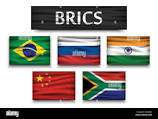
Russia and Iran continue to cooperate around natural gas
An article on the Oilprice website reports on the expansion of and the deepening of the cooperation between Russia and Iran, with a focus on energy, particularly gas. Earlier this year, the Iranian Supreme Leader Ali Khamenei approved a 20-year comprehensive cooperation agreement, similar to the 25-year agreement signed between Tehran and Beijing five years ago.
The focus on gas cooperation between Moscow and Tehran is understandable, as both countries have some of the largest reserves of natural gas in the world. Russia's reserves are estimated at approximately 37 trillion m3, while Iran's are around 32 trillion m3. In July 2022, Gazprom and the National Iranian Oil Company (NIOC) signed a $40 billion memorandum of understanding (MoU) to deepen their cooperation in the gas sector.
Russia, Iran, and Qatar are part of the Gas Exporting Countries Forum (GECF), which is similar to the OPEC oil cartel. The GECF, along with nine other gas-producing countries and seven observers, holds almost 60% of the world's proven gas reserves. In total, the GECF accounts for 71% of all world gas reserves, 44% of its production, 57% of liquefied natural gas (LNG) exports, and 53% of all gas pipelines (by length).
The Memorandum of Understanding (MoU) outlines that the gas partnership between Moscow and Tehran should comprise of two primary elements: the transportation of natural gas via pipelines and the supply of offshore liquefied natural gas (LNG).
In 2022, Hamid Hosseini, President of the Union of Oil, Gas and Petrochemical Exporters of Iran, predicted that the American LNG would dominate the European market. According to the speaker, if Iran and Russia collaborate to reduce the United States' influence in the oil, gas, and petroleum markets, it would be beneficial for both countries.
Gazprom is currently assisting NIOC in developing the Kish and North Pars gas fields, which produce over 10 million m3 of gas daily. This project is valued at $10 billion. The project for the development of the South Pars field on the maritime border between Iran and Qatar, estimated at $15 billion, also plays an important role. Additionally, there is cooperation in several LNG projects and the construction of gas pipelines.
